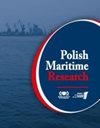Management Strategy for Seaports Aspiring to Green Logistical Goals of IMO: Technology and Policy Solutions
IF 2
3区 工程技术
Q2 ENGINEERING, MARINE
引用次数: 4
Abstract
Abstract Recently, because of serious global challenges including the consumption of energy and climate change, there has been an increase in interest in the environmental effect of port operations and expansion. More interestingly, a strategic tendency in seaport advancement has been to manage the seaport system using a model which balances environmental volatility and economic development demands. An energy efficient management system is regarded as being vital for meeting the strict rules aimed at reducing the environmental pollution caused by port facility activities. Moreover, the enhanced supervision of port system operating methods and technical resolutions for energy utilisation also raise significant issues. In addition, low-carbon ports, as well as green port models, are becoming increasingly popular in seafaring nations. This study comprises a comprehensive assessment of operational methods, cutting-edge technologies for sustainable generation, storage, and transformation of energy, as well as systems of smart grid management, to develop a green seaport system, obtaining optimum operational efficiency and environmental protection. It is thought that using a holistic method and adaptive management, based on a framework of sustainable and green energy, could stimulate creative thinking, consensus building, and cooperation, as well as streamline the regulatory demands associated with port energy management. Although several aspects of sustainability and green energy could increase initial expenditure, they might result in significant life cycle savings due to decreased consumption of energy and output of emissions, as well as reduced operational and maintenance expenses.实现国际海事组织绿色物流目标的海港管理战略:技术和政策解决方案
近年来,由于能源消耗和气候变化等严重的全球挑战,人们对港口运营和扩建的环境影响越来越感兴趣。更有趣的是,海港发展的战略趋势是使用平衡环境波动和经济发展需求的模型来管理海港系统。能源效率管理系统被认为是满足旨在减少港口设施活动造成的环境污染的严格规定的关键。此外,加强对港口系统操作方法的监管和能源利用的技术解决方案也提出了重大问题。此外,低碳港口和绿色港口模式在航海国家越来越受欢迎。本研究包括综合评估营运方法、可持续发电、储存和转换能源的尖端技术,以及智能电网管理系统,以发展绿色海港系统,获得最佳的营运效率和环境保护。我们认为,在可持续和绿色能源的框架下,采用整体方法和适应性管理,可以激发创造性思维,建立共识和合作,并简化与港口能源管理相关的监管要求。虽然可持续性和绿色能源的几个方面可能增加初始支出,但由于能源消耗和排放的减少以及业务和维护费用的减少,它们可能导致生命周期的大量节省。
本文章由计算机程序翻译,如有差异,请以英文原文为准。
求助全文
约1分钟内获得全文
求助全文
来源期刊

Polish Maritime Research
工程技术-工程:海洋
CiteScore
3.70
自引率
45.00%
发文量
20
审稿时长
>12 weeks
期刊介绍:
The scope of the journal covers selected issues related to all phases of product lifecycle and corresponding technologies for offshore floating and fixed structures and their components.
All researchers are invited to submit their original papers for peer review and publications related to methods of the design; production and manufacturing; maintenance and operational processes of such technical items as:
all types of vessels and their equipment,
fixed and floating offshore units and their components,
autonomous underwater vehicle (AUV) and remotely operated vehicle (ROV).
We welcome submissions from these fields in the following technical topics:
ship hydrodynamics: buoyancy and stability; ship resistance and propulsion, etc.,
structural integrity of ship and offshore unit structures: materials; welding; fatigue and fracture, etc.,
marine equipment: ship and offshore unit power plants: overboarding equipment; etc.
 求助内容:
求助内容: 应助结果提醒方式:
应助结果提醒方式:


